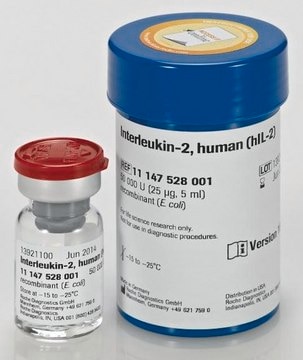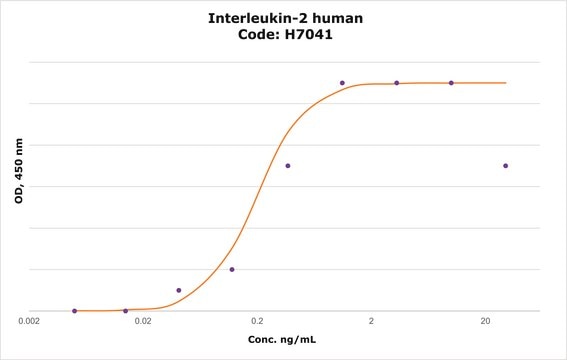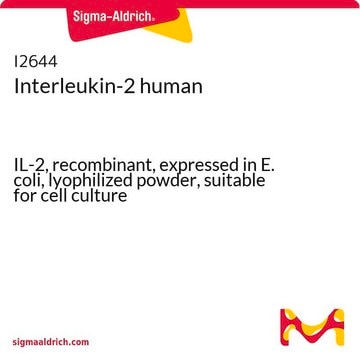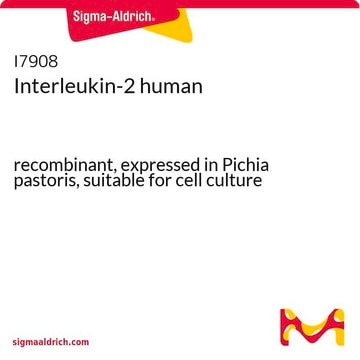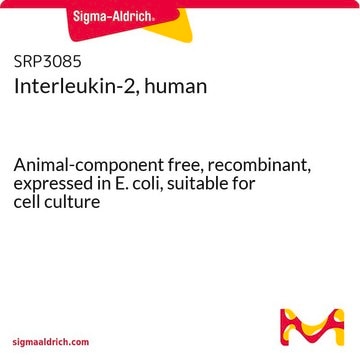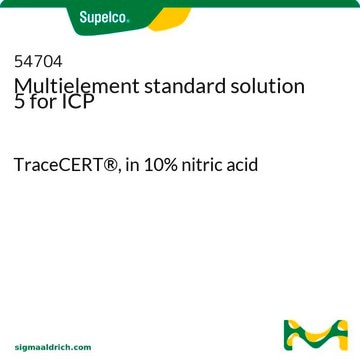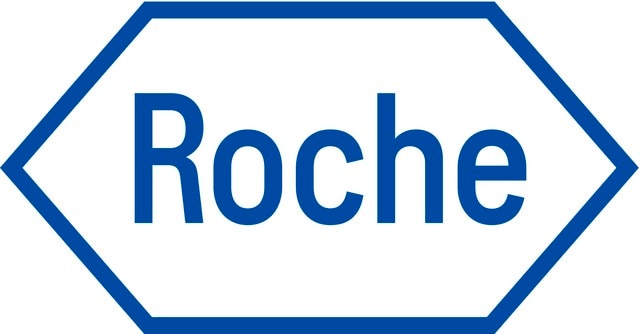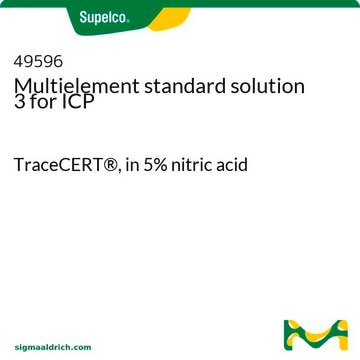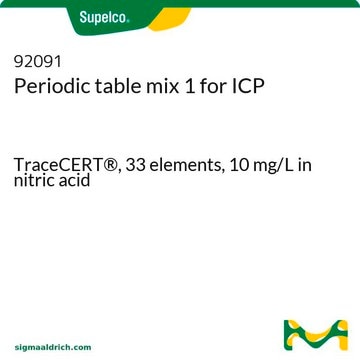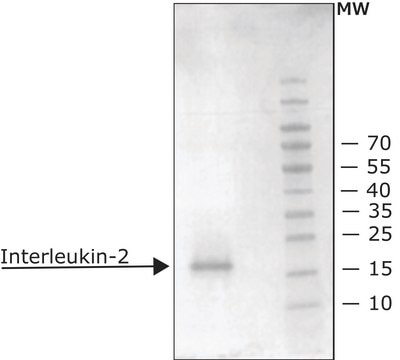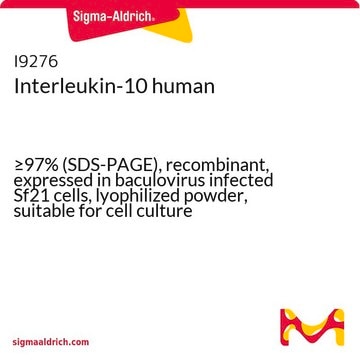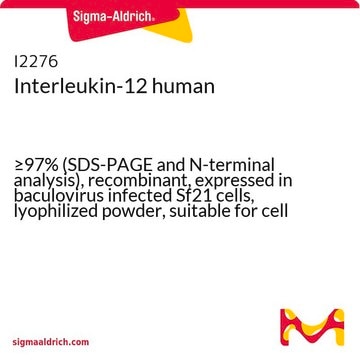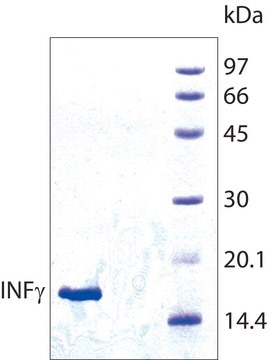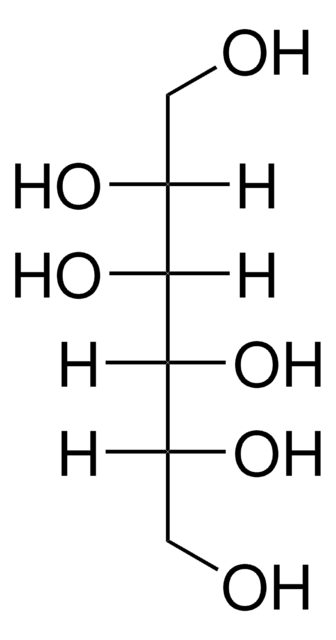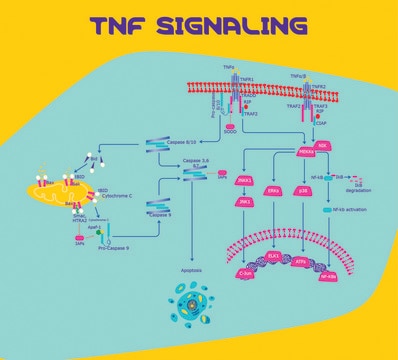57600
Interleukin-2 human
recombinant, expressed in E. coli, ~10000 U/mL
Synonym(s):
IL-2, TCGF, hIL-2
Sign Into View Organizational & Contract Pricing
All Photos(1)
About This Item
Recommended Products
Related Categories
Biochem/physiol Actions
Promotes the growth of IL-2 dependent lymphocytes. Amino acid sequence of IL-2.
Packaging
One vial contains 10′000 Units
Caution
Stable at −20 °C; prepare appropriate aliquots and avoid repeated freezing and thawing, since aggregation may occur resulting in apparent loss of activity.
Unit Definition
1 U corresponds to the unit activity in the colorimetric MTT-assay with CTLL-2 cells.
Physical form
Clear; colorless solution in Dulbecco-PBS; containing 1 mg BSA/mL.
Other Notes
Sales restrictions may apply.
wgk_germany
WGK 3
flash_point_f
Not applicable
flash_point_c
Not applicable
Certificates of Analysis (COA)
Search for Certificates of Analysis (COA) by entering the products Lot/Batch Number. Lot and Batch Numbers can be found on a product’s label following the words ‘Lot’ or ‘Batch’.
Already Own This Product?
Find documentation for the products that you have recently purchased in the Document Library.
Customers Also Viewed
Interleukin 2.
K A Smith
Annual review of immunology, 2, 319-333 (1984-01-01)
S Gillis et al.
Journal of immunology (Baltimore, Md. : 1950), 120(6), 2027-2032 (1978-06-01)
Several soluble factors have recently been associated with the proliferation and differentiation of thymus-derived lymphocytes. One of these factors present in medium conditioned by T cell mitogen-stimulated lymphocytes has the ability to promote the long-term culture of normal and antigen-specific
R J Robb et al.
Proceedings of the National Academy of Sciences of the United States of America, 81(20), 6486-6490 (1984-10-01)
Human interleukin 2 was separated into multiple molecular forms by selective immunoaffinity chromatography and chromatofocusing. For the most part, this heterogeneity was attributed to variations in glycosylation of the threonine residue in position 3 of the polypeptide chain. The various
Denise L Cecil et al.
Cancer research, 74(10), 2710-2718 (2014-04-30)
Immunization against self-tumor antigens can induce T-regulatory cells, which inhibit proliferation of type I CD4(+) T-helper (TH1) and CD8(+) cytotoxic T cells. Type I T cells are required for potent antitumor immunity. We questioned whether immunosuppressive epitopes could be identified
Katrien Van Raemdonck et al.
Angiogenesis, 17(3), 631-640 (2014-01-29)
CXC chemokines influence a variety of biological processes, such as angiogenesis, both in a physiological and pathological context. Platelet factor-4 (PF-4)/CXCL4 and its variant PF-4var/CXCL4L1 are known to favor angiostasis by inhibiting endothelial cell proliferation and chemotaxis. CXCL4L1 in particular
Our team of scientists has experience in all areas of research including Life Science, Material Science, Chemical Synthesis, Chromatography, Analytical and many others.
Contact Technical Service